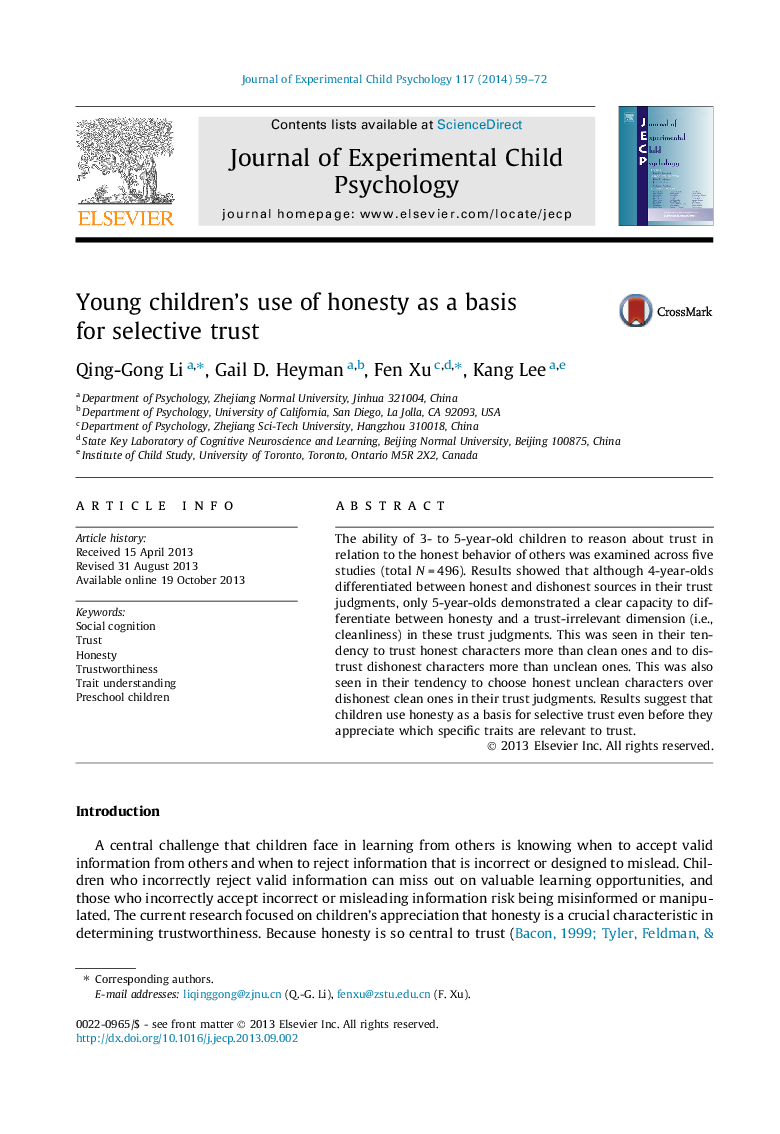| Article ID | Journal | Published Year | Pages | File Type |
|---|---|---|---|---|
| 918150 | Journal of Experimental Child Psychology | 2014 | 14 Pages |
•Across five studies we examined preschool children’s reasoning about honesty and trust.•4-Year-olds differentiated between honest and dishonest sources in their trust judgments.•Only 5-year-olds differentiated between honesty and the trust-irrelevant dimension of cleanliness.•Results suggest children make global evaluative judgments before using an honesty-specific strategy.
The ability of 3- to 5-year-old children to reason about trust in relation to the honest behavior of others was examined across five studies (total N = 496). Results showed that although 4-year-olds differentiated between honest and dishonest sources in their trust judgments, only 5-year-olds demonstrated a clear capacity to differentiate between honesty and a trust-irrelevant dimension (i.e., cleanliness) in these trust judgments. This was seen in their tendency to trust honest characters more than clean ones and to distrust dishonest characters more than unclean ones. This was also seen in their tendency to choose honest unclean characters over dishonest clean ones in their trust judgments. Results suggest that children use honesty as a basis for selective trust even before they appreciate which specific traits are relevant to trust.
